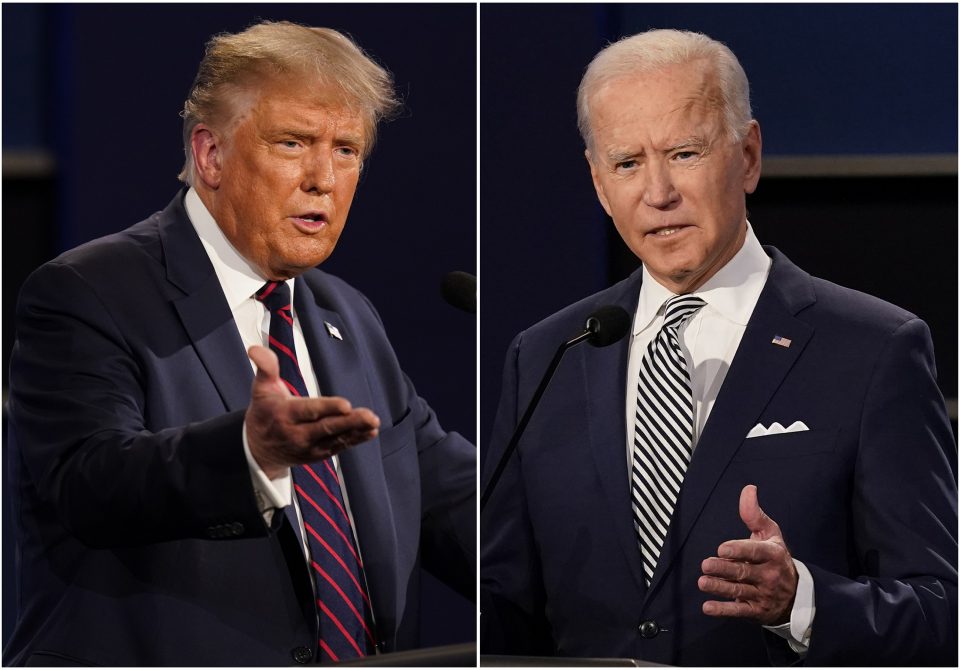By: Jacey Fortin
c.2021 The New York Times Company
The inauguration of a U.S. president typically takes place at a public ceremony marked by pomp, circumstance and the presence of a predecessor.
This has been the custom for about two centuries: a show of participation from the departing head of state that symbolizes the peaceful transfer of power. When President Donald Trump promised to put an end to “American carnage” in his inauguration speech on Jan. 20, 2017, former President Barack Obama looked on from a seat just beyond Trump’s left shoulder.
President-elect Joe Biden, who attended that inauguration as the former vice president four years ago, will take his own oath of office Wednesday. But Trump has announced that he will be absent. And while that decision is a break from the norm, it is not without precedent: A handful of presidents have also missed the inaugurations of their successors.
“It’s usually a sign that American society is in the midst of major political feud,” presidential historian Douglas Brinkley said. “The fact that the incoming and outgoing presidents can’t shake hands and co-participate in an inauguration means that something’s off-kilter in the democracy.”
That was the case for John Adams, his son John Quincy Adams and Andrew Johnson — three presidents who were bitterly at odds with those who unseated them. All three men served no more than one term. And Johnson, like Trump, was impeached.
When the presidency of John Adams ended in 1801, it could have gone badly. The United States was in its infancy and had never seen a head of state transfer power to a political opponent — in this case, Thomas Jefferson, whose republican vision for the country was at odds with the strong central government favored by Adams.
The election of 1800 was hard fought, marred by personal attacks and deadlocked for weeks, in part because the country had not yet worked out the kinks of electing its president and vice president at the same time.
“This problem overshadowed Adams’s rude refusal to show up for the inauguration,” said Carol Berkin, a professor of history at Baruch College in New York City.
Democracy seemed so wobbly during the voting process that civil war was a distinct possibility. But in the end, Jefferson claimed the presidency peacefully. And on Inauguration Day, Adams left Washington quietly, before dawn, in a stagecoach bound for Baltimore.
John Quincy Adams, the sixth U.S. president, followed in his father’s footsteps when he declined to attend the swearing-in of the man who had unseated him: the populist Andrew Jackson.
Like his father, Adams had differences with his successor that were not just political. The men also disliked each other, Berkin said.
The election, which took place at a time when the right to vote was expanding to a slightly larger pool of white men than before, involved plenty of mudslinging. Jackson won, and Adams left the White House on March 3, 1829, the day before the inauguration.
The next president to snub his predecessor was Johnson, whose presidency was, like Trump’s, marred by impeachment.
Johnson was not on the ballot in the presidential election of 1868. The Democratic Party instead nominated Horatio Seymour, who was in turn defeated by Ulysses S. Grant, a Republican. But the animosity between Grant, who had led the Union to victory in the Civil War, and Johnson, a Southerner who opposed Reconstruction, was clear.
It culminated in Johnson’s refusal to attend the inauguration in 1869 — a decision that was so last minute that a carriage arrived to collect him on the morning of the ceremony and was turned away, according to a report from The New York Herald.
That snub, which happened 152 years ago and reflected deep schisms in a country trying to recover from the deadliest war in its history, appears to have been the last time a departing president declined to attend his successors’ inauguration for political reasons.
(There were other instances that were not necessarily political. Martin Van Buren didn’t attend the 1841 inauguration of his successor, William Henry Harrison, for reasons that remain unclear. Woodrow Wilson accompanied his successor, Warren G. Harding, to the Capitol on Inauguration Day in 1921 but was not well enough to participate in the ceremony. Richard Nixon, who resigned the presidency in 1974, did not stick around to see Gerald Ford take the oath of office in the East Room of the White House.)
Trump announced Jan. 8 that he would not attend Biden’s ceremony.
“To all of those who have asked,” the president tweeted from an account that is now suspended, “I will not be going to the Inauguration on January 20th.”
And while Trump was not the first to make such a decision, both Berkin and Brinkley pointed out that he had broken from his predecessors by refusing to accept the results of the election that unseated him.
Brinkley said that while it was “an esteemed American tradition” for a president to attend the inauguration of his successor, the events of two weeks ago — when a violent mob of Trump supporters stormed the Capitol — were extraordinary enough to overturn old precedents.
“For a while, I thought it would be helpful for the country if Trump were there for the inauguration,” he said. “But everything changed on Jan. 6, when Trump became an insurrectionist.”
The White House did not respond to a request for comment.


